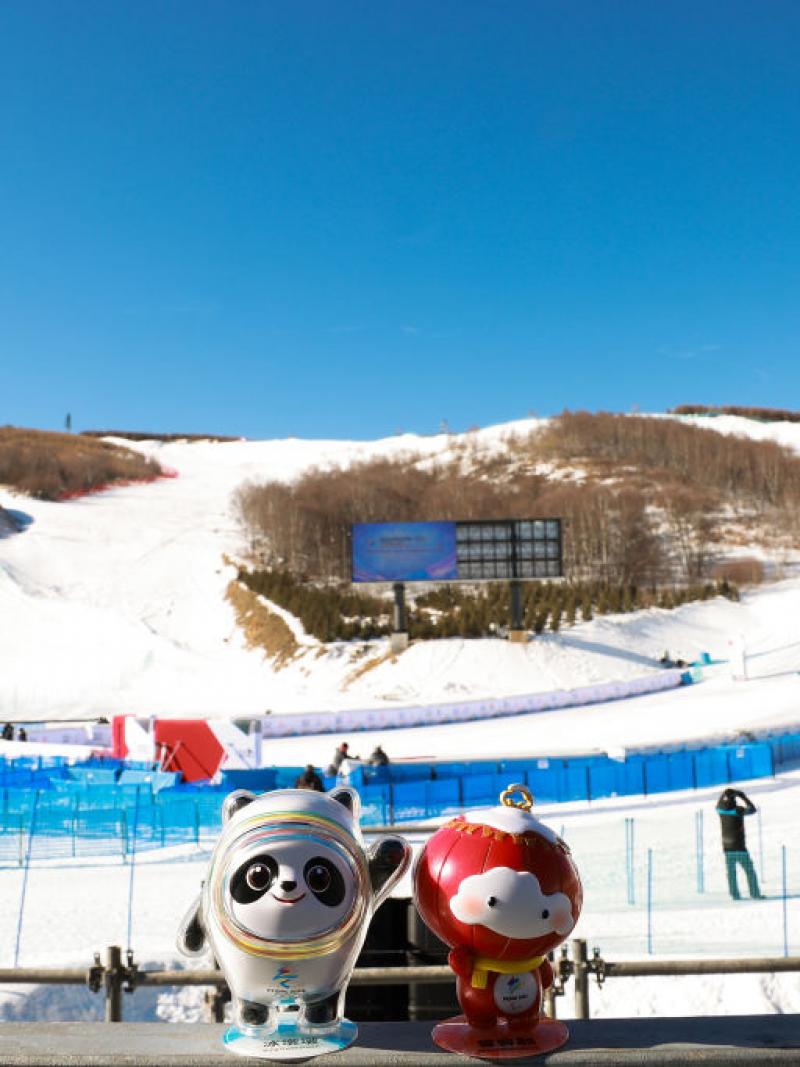Beijing 2022 releases Pre-Games Sustainability Report
The report summarises the progress in the fields of ‘Positive Environmental Impact’, ‘New Development for the Region’ and ‘Better Life for the People’ 20 Jan 2022Beijing Organising Committee for the 2022 Olympic and Paralympic Winter Games (Beijing 2022) published the ‘Sustainability for the Future - Beijing 2022 Pre-Games Sustainability Report’.
The report summarises the progress in the fields of ‘Positive Environmental Impact’, ‘New Development for the Region’ and ‘Better Life for the People’, demonstrating Beijing 2022’s efforts in achieving its sustainability goals.
Beijing 2022 has integrated three international standards in event sustainability management system (ISO20121), environment management system (ISO14001) and social responsibility (ISO26000) to create the Beijing 2022 Sustainability Management System Guide.
Using this system, Beijing 2022 has effectively managed the sustainability work of all venues and more than 50 functional areas.
Beijing 2022 has implemented carbon reduction measures throughout the Games planning period. In the Beijing zone, four competition venues, one non-competition zone and one training venue are the legacies of the Beijing 2008 Games, thereby avoiding additional construction; natural carbon dioxide refrigerant is used at four ice sports venues - it is the first time this low climate impact technology has been used in China and at the Winter Games; all venues are powered by renewable energy; and energy-saving and clean-energy vehicles such as electric vehicles and hydrogen-fueled vehicles will account for 100 per cent of all passenger cars and 84.9 per cent of all vehicles at Games-time.
Furthermore, carbon sinks generated by afforestation projects in Beijing and Zhangjiakou, together with certified emission reductions sponsored by official domestic partners of Beijing 2022, including PetroChina, the State Grid Corporation of China and the China Three Gorges Corporation, will compensate all residual emissions and ensure a carbon-neutral Games.
In order to reduce negative impacts on the environment during construction, various measures were taken by Beijing 2022. For example, the construction plans of the Yanqing Village were adjusted to preserve 127 native trees; 11,027 plants - shrubs, grasses, rattans, and saplings - have been transplanted from the Yanqing zone to nearby conservation areas; a total of 24,272 trees in the Yanqing zone have been transplanted to an ex-situ conservation base; and more than 600 artificial bird nests and 11 wildlife corridors were set up in and around the Yanqing Zone.
The preparations for Beijing 2022 Games have also accelerated the environment protection efforts of the host city. From 2015 to 2021, the air quality in Beijing and Zhangjiakou improved significantly. In 2021, the annual average concentration of Beijing PM2.5 is 33 μg/m3, which is 59 per cent lower than that in 2015. In 2021, the annual average concentration of Zhangjiakou PM2.5 is 23.4 μg/m3, which is 33.1 per cent lower than that in 2015.
Aside from the environmental improvements, Beijing 2022 Games has also boosted the economic development of Beijing and Zhangjiakou, bringing better life to the local people.
The Beijing - Zhangjiakou High-speed Railway, of which the construction was accelerated by the Games, connects the three competition zones and includes Zhangjiakou into the one-hour living circle of Beijing, with the travel time between the two cities reduced from more than three hours to 48 minutes.
More than 30,000 people have already directly and/or indirectly been involved in the winter sports industry and tourism service areas, as the industry creates job opportunities for the local residents.
International Olympic Committee (IOC) president Thomas Bach said in a video message released for the publication of the report, “As this report outlines, Beijing 2022 is helping accelerate sustainable development in China, showcasing solutions for a more sustainable future. In doing so, Beijing 2022 has consulted with local and international stakeholders, raising awareness around sustainability topics in China and beyond.”
“This informative report discloses sustainability highlights of the Games,” said Andrew Parsons, International Paralympic Committee (IPC) President. “We have reasons to believe that staging of the Beijing 2022 Games will promote sustainable development in all three spheres: environment, economy, and society. We believe the Paralympic Winter Games will enable Para athletes to achieve sporting excellence and thereby inspire and excite the world."
“This Report summarises our successful efforts in staging a green Games. The sustainability achievements already demonstrate and also provide an overview of the progress in terms of our vision, objectives, measures and outcomes. We have every confidence in staging a 'simple, safe and splendid' Games that will leave a deep impression and fond memories to the whole world. We also have every confidence in passing on the sustainability legacy of our Games delivering lasting benefits to the people,” said Cai Qi, President of the Beijing Organising Committee for the 2022 Olympic and Paralympic Winter Games.









